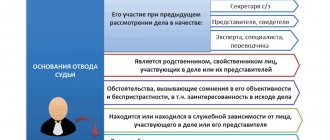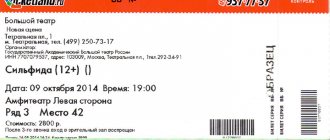What is petty theft - a crime or an administrative offence? And where is the line when crossing which a person will be subject to criminal prosecution? After all, administrative punishment, although unpleasant, does not entail a criminal record.
Petty theft is a cross-industry category. Precisely because liability for petty theft is provided for in Art. 7.27 Code of Administrative Offenses of the Russian Federation. And also Art. 158.1 of the Criminal Code of the Russian Federation. And, if the theft was committed with qualifying characteristics (with the threat of using a weapon (robbery), by a group of people, etc.), then it is no longer considered minor. For such cases, the Criminal Code has provided special articles.
What actions are considered theft?
The answer to the question of what theft is was given by the Supreme Court of the Russian Federation. So, theft is the unlawful gratuitous seizure and (or) circulation of someone else’s property in favor of the culprit or other persons, committed for selfish purposes, causing damage to the owner or other holder of this property. It’s a rather cumbersome design, but all the elements must be there to qualify the action as theft. Namely:
- selfish goal - the desire to obtain property benefits, to cause damage to the owner of such property
- illegality - a person has no rights to commit such actions. Even supposed ones.
- gratuitous seizure - the property ceases to be in the possession of the owner, an equivalent replacement is not provided
- damage to the owner arises from the purpose and nature of the actions.
Commentary on Article 7.27 of the Code of Administrative Offenses of the Russian Federation
1. The object of this offense is property relations, and the direct subject of the attack is property.
2. The objective side of the offense consists of illegal actions aimed at taking possession of someone else’s property through theft, fraud, misappropriation or embezzlement in the absence of signs of crimes provided for in parts two, three and four of Article 158, parts two and three of Article 159 and parts two and three of Article 160 of the Criminal Code of the Russian Federation.
Theft refers to the unlawful gratuitous seizure and (or) conversion of someone else's property for the benefit of the perpetrator or other persons, committed for mercenary purposes, causing damage to the owner or other holder of this property.
Petty theft by theft forms an administrative offense from the moment of secret seizure of someone else's property and the opportunity to dispose of it.
Theft of someone else's property is considered petty if the value of the stolen property does not exceed one hundred rubles.
Theft is not considered petty if there are signs of crimes under Art. 158 - 160 of the Criminal Code of the Russian Federation. It should be taken into account that the criminal law ban borders on the administrative law ban, and it is impossible to determine the lower threshold of the criminal law ban without determining the upper threshold of the administrative law ban. In this regard, it is indicative that the Presidium of the Supreme Court of the Russian Federation dismissed the case against T., who was accused of stealing someone else's property worth 38 rubles. (a bottle of vodka) for the lack of corpus delicti in his actions, indicating that he should have been subject to administrative liability for committing petty theft <15>.
——————————— <15> BVS of the Russian Federation. 2002. N 4. P. 12.
3. Subjects of the offense are citizens over 16 years of age.
4. The subjective side of the offense is characterized by guilt in the form of intent aimed at taking possession of someone else’s property in order to turn it into one’s own benefit.
What is petty theft of property
Theft includes various actions that involve taking someone else's property. This includes theft (secret theft), robbery (open theft), fraud, embezzlement, etc. Petty theft, liability for which is provided for by the Code of Administrative Offenses of the Russian Federation, is exclusively:
- theft
- fraud
- appropriation
- embezzlement
Moreover, in the absence of qualifying features, as we will discuss below. Robbery and robbery, extortion and other crimes due to their social danger cannot be administrative offenses. Only criminal liability is provided for such actions.
The limit of administrative and criminal liability will also be the amount of damage caused to the owner. This is no more than 2,500 rubles. for bringing to administrative responsibility. Moreover, the same types of punishment are provided for actions that caused harm in the amount of up to 1000 rubles and in the amount from 1000 to 2500 rubles. However, their sizes are different.
Thus, petty theft is the appropriation of someone else’s property, causing damage in the amount of up to 2,500 rubles .
Big problems of petty theft
Money was regularly debited from the card of a resident of the Moscow region. In a year, the man lost almost half a million rubles. The scammers acted using a telephone: they purchased a SIM card, which they connected to the client’s mobile bank. An employee of a financial institution helped them with this. The attackers were ruined by greed: in a similar way, they carried out more than one theft from several people at once, and law enforcement officers regularly received statements about the crime they had committed, which made it possible to establish the systematic nature of actions that were carried out as if they were carbon copies.
“The fraudsters were convicted, but the question arose about who should return the stolen funds. During the process, bank employees said: the one who took the money will give it back. Several people were sentenced to various punishments at once, but they had no assets, and there is no hope of collecting debt from the convicted: even if they are employed in prison, their income is usually pitiful,” says the civil lawyer affairs of our legal center Ilya Antonov
Surprisingly, the court decided to side with the bankers. Although the victim’s position seemed quite justified: he kept money in a financial organization that was robbed by one of the employees and his accomplices. It is logical that entrepreneurs should return the funds immediately, and relationships with criminals and recovery of stolen funds from them should not be a headache for the client. Justice was found only in the Moscow Regional Court.
“As a rule, those who managed to gain access to the mobile bank of a potential crime victim act secretly, writing off small amounts. The victims do not notice the loss of several tens of rubles. It is almost impossible to prosecute criminals acting according to such a scheme, because damage caused in the amount of up to 1000 rubles is only a violation of Article 7.27 of the Code of Administrative Offences. Petty theft is punishable by a fine or administrative arrest,” explains civil lawyer at our legal center Ilya Antonov
Usually, criminals have access to the accounts of several people at once, who gradually lose their savings. Russian legislators are puzzled by a similar problem. In the depths of the State Duma, a bill is being developed that will make it possible to combine several small thefts into one large theft and bring swindlers not to administrative, but to criminal liability.
“The only, but very effective, way to protect yourself from the actions of scammers is to connect to the SMS service informing about completed transactions. This will not prevent money theft, but you can immediately find out about suspicious write-offs and block the account. And then sort things out with bank representatives,” advises civil lawyer at our legal center Ilya Antonov
Amount of petty theft of property
The legislation currently contains the following provisions on petty theft in the form of administrative offenses (two of its varieties):
- petty theft of someone else's property (Part 1 of Article 7.27 of the Code of Administrative Offenses of the Russian Federation), the value of which does not exceed one thousand rubles, by theft, fraud, misappropriation or embezzlement in the absence of the qualifying signs of these crimes and the signs of the subject provided for in Art. 158.1 of the Criminal Code of the Russian Federation;
- petty theft of someone else's property (Part 2 of Article 7.27 of the Code of Administrative Offenses of the Russian Federation) worth more than one thousand rubles, but not more than two thousand five hundred rubles through theft, fraud, misappropriation or embezzlement in the absence of the qualifying signs of these crimes and the signs of the subject provided for in Art. 158.1 of the Criminal Code of the Russian Federation.
The criminal law also provides for a new criminal law norm (Article 158.1 of the Criminal Code of the Russian Federation), establishing criminal liability for two administrative offenses (administrative prejudice). For the first of them, a person may be subject to administrative punishment for petty (in the amount of 1 to 2.5 thousand rubles) theft, provided for in Part 2 of Art. 7.27 Code of Administrative Offenses of the Russian Federation. The second offense must be in the form of petty theft, the minimum amount of which is not established, and the maximum amount is 2.5 thousand rubles.
The essence of the term “petty theft”
This offense is provided for in Art. 7.27 Code of Administrative Offences. The abbreviation “CAO” means the Code of Administrative Offenses, which deals with illegal acts for which the violator faces only administrative punishment, that is, if his guilt is proven, he does not risk losing his freedom. According to the law, the following illegal actions include petty theft:
- theft of a certain amount of money or an item whose value does not exceed a certain amount;
- fraudulent activities, as a result of which victims lose small amounts of money;
- embezzlement for personal purposes of certain amounts, the amount of which does not exceed the established limit.
For the unlawful acts listed above, the punishment provided for by the Criminal Code, that is, the Criminal Code, cannot be imposed, since they do not entail large losses for the victims. The concept of “theft” is defined as the appropriation of someone else’s property. By committing this act, the offender has selfish goals.
Despite the fact that people suffering from kleptomania steal other people's property not for profit, but only to receive satisfaction from the immediate process, their actions are also classified as theft.
Consequently, the punishment that kleptomaniacs receive for their actions is no different from those imposed on ordinary offenders.
What actions are considered theft?
The answer to the question of what theft is was given by the Supreme Court of the Russian Federation. So, theft is the unlawful gratuitous seizure and (or) circulation of someone else’s property in favor of the culprit or other persons, committed for selfish purposes, causing damage to the owner or other holder of this property. It’s a rather cumbersome design, but all the elements must be there to qualify the action as theft. Namely:
- selfish goal - the desire to obtain property benefits, to cause damage to the owner of such property
- illegality - a person has no rights to commit such actions. Even supposed ones.
- gratuitous seizure - the property ceases to be in the possession of the owner, an equivalent replacement is not provided
- damage to the owner arises from the purpose and nature of the actions.
Amount of petty theft of property
The legislation currently contains the following provisions on petty theft in the form of administrative offenses (two of its varieties):
- petty theft of someone else's property (Part 1 of Article 7.27 of the Code of Administrative Offenses of the Russian Federation), the value of which does not exceed one thousand rubles, by theft, fraud, misappropriation or embezzlement in the absence of the qualifying signs of these crimes and the signs of the subject provided for in Art. 158.1 of the Criminal Code of the Russian Federation;
- petty theft of someone else's property (Part 2 of Article 7.27 of the Code of Administrative Offenses of the Russian Federation) worth more than one thousand rubles, but not more than two thousand five hundred rubles through theft, fraud, misappropriation or embezzlement in the absence of the qualifying signs of these crimes and the signs of the subject provided for in Art. 158.1 of the Criminal Code of the Russian Federation.
The criminal law also provides for a new criminal law norm (Article 158.1 of the Criminal Code of the Russian Federation), establishing criminal liability for two administrative offenses (administrative prejudice). For the first of them, a person may be subject to administrative punishment for petty (in the amount of 1 to 2.5 thousand rubles) theft, provided for in Part 2 of Art. 7.27 Code of Administrative Offenses of the Russian Federation. The second offense must be in the form of petty theft, the minimum amount of which is not established, and the maximum amount is 2.5 thousand rubles.
Determining the amount of damage
Stolen property is subject to an assessment of its value at the time of the theft. If the theft occurs in a store and a completely new product is stolen, then the damage can be assessed immediately at the purchase or sale price of this product.
In case of theft of used property, a special assessment is made and a certificate is issued, on the basis of which a further procedural decision is made.
Such an assessment can be carried out both by investigative authorities and representatives of the owner, as well as the defense of the defendant.
When committing petty theft, there should not be any qualifying signs of theft.
For example, a person will steal money in the amount of 2,000 rubles, but in order to steal it, he will enter the office of his colleague. Such theft will be considered a criminal offense - theft with penetration will be qualified under Article 158, Part 2 of the Criminal Code of the Russian Federation.
If penetration is carried out into a home, the danger of the crime increases and the culprit is prosecuted under Article 158 Part 3.
Signs that make theft a criminal offense
Theft is the secret theft of someone else's property. Invisible to the owner and third parties. Maybe even in their presence, but the person acted and thought that he was performing actions in secret. Open theft, with the threat or use of a weapon - no.
Fraud is theft by deception or breach of trust. This is knowingly communicating false information. In which the owner does not prevent the seizure of property (funds) from him. They are also committed by the violator for selfish purposes, this is important. Not to temporarily use the property, but to turn it into your own property. Actions in the field of lending (Article 159.1 of the Criminal Code of the Russian Federation), when receiving payments (159.2), in insurance (159.5), and in the field of computer information (159.6) can also be recognized as petty theft.
Misappropriation and embezzlement occur when the property was temporarily held by the offender in accordance with the agreement. For example. the forwarder owns this or that property by virtue of an employment contract.
All these actions will be classified as petty theft if the amount of damage does not exceed 2,500 rubles. AND!! The act does not contain aggravating features. All these signs are contained in the Criminal Code of the Russian Federation in the relevant articles. A group of persons by prior conspiracy, intrusion into a home, etc.
An example from judicial practice
Citizen Ivanov, while in a grocery store, decided not to pay for the goods he needed.
While trying to secretly carry out food, Ivanov was caught red-handed.
Such theft is classified as theft, based on the fact that Ivanov intended to remove property belonging to the store secretly.
Bearing in mind the fact that the total amount of goods that the offender tried to take out was 1,200 rubles, as well as the fact that Ivanov was law-abiding, the court decided to assign a preventive measure to Ivanov in accordance with Part 2 of Article 7.27 of the Code of Administrative Offenses of the Russian Federation.
In the modern world, thefts occur every day. The circumstances of these thefts are extremely different, therefore, for adequate legal proceedings in cases involving theft, it is necessary to know a clear difference between the various types of such crimes.
Now petty theft is punishable by criminal charges, not administrative charges! Practice:










